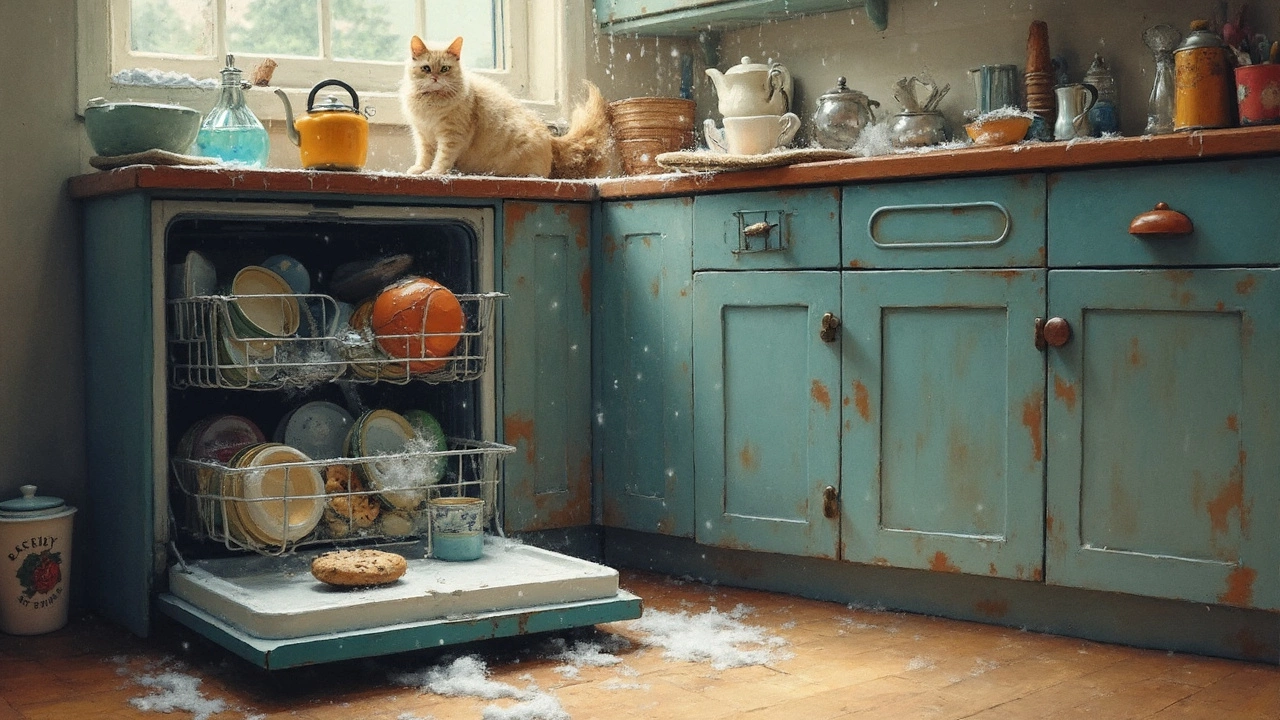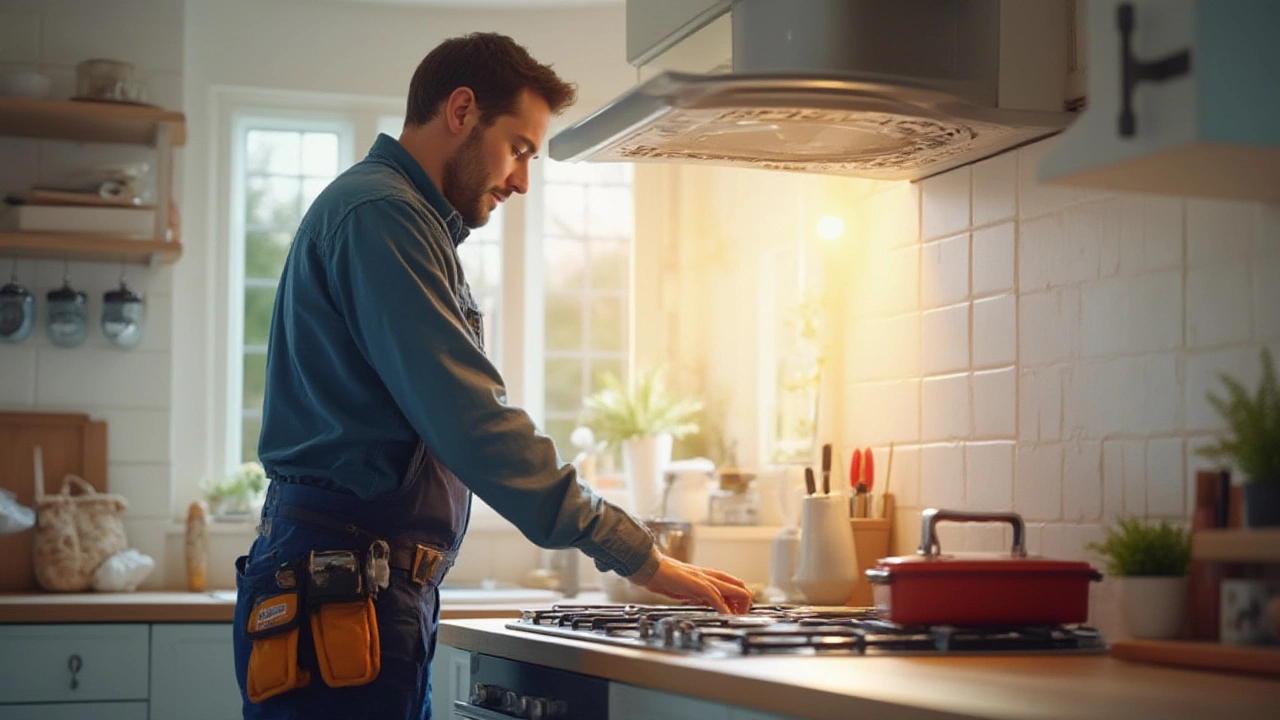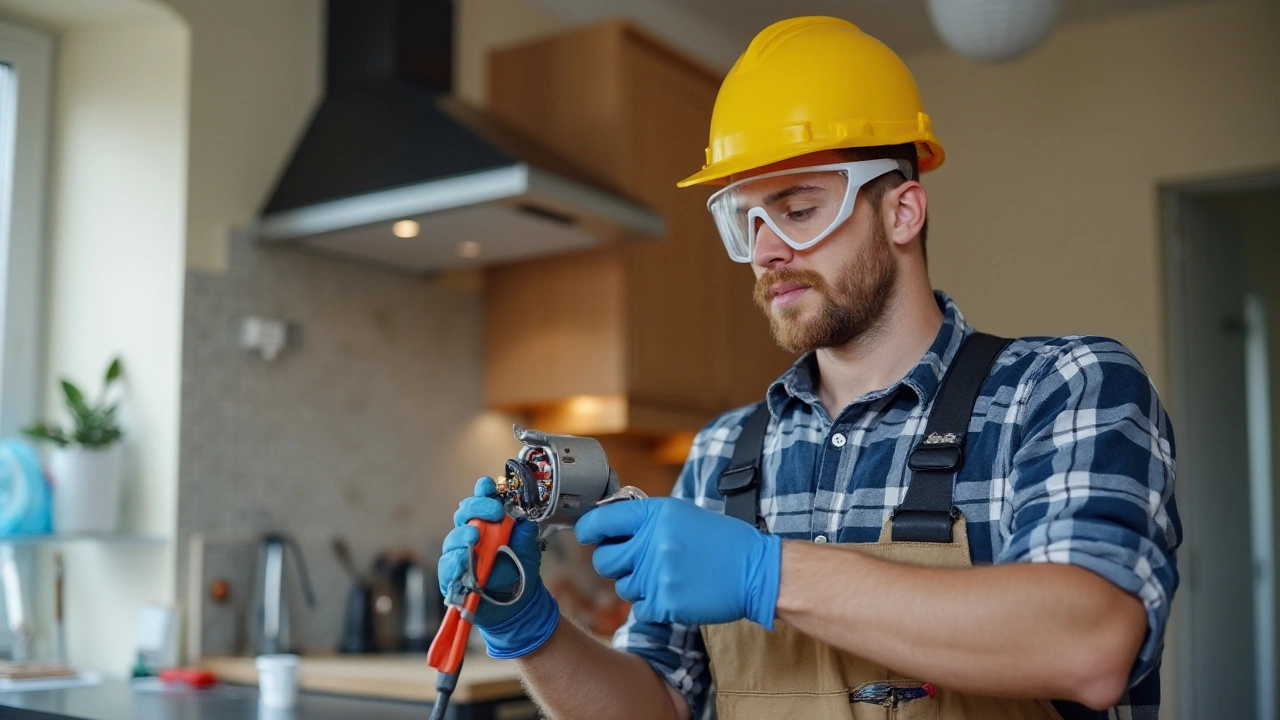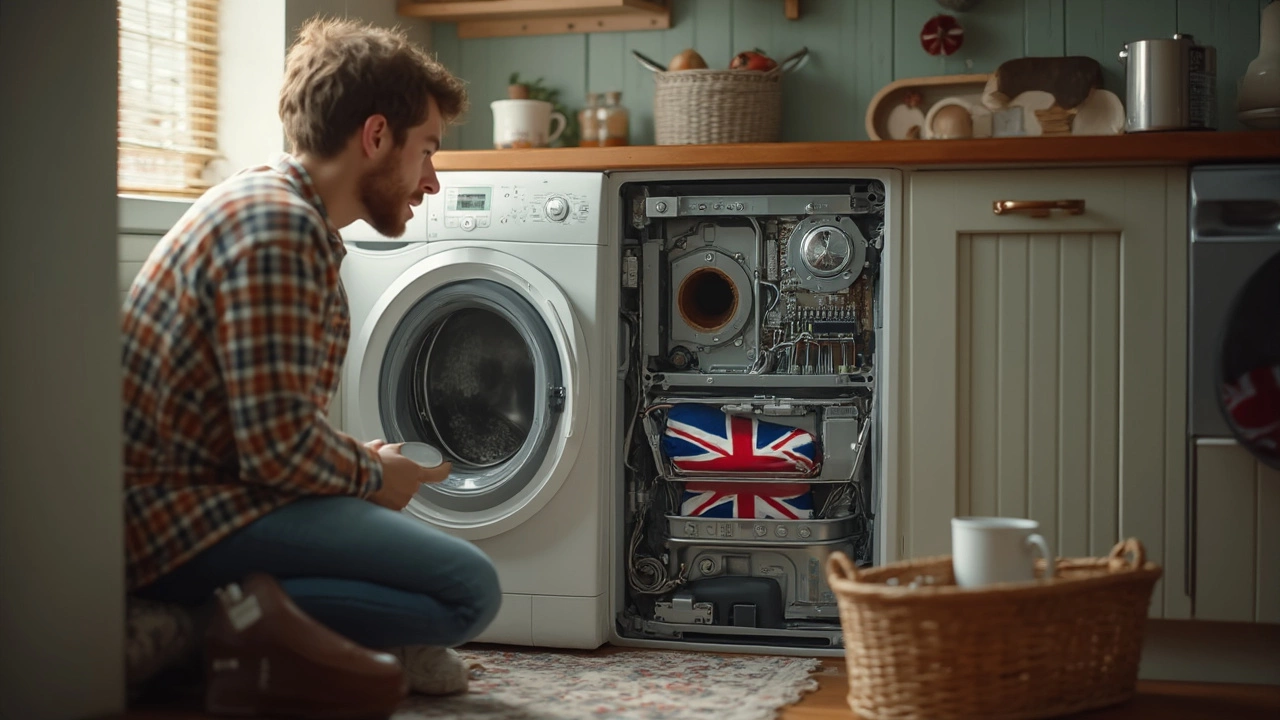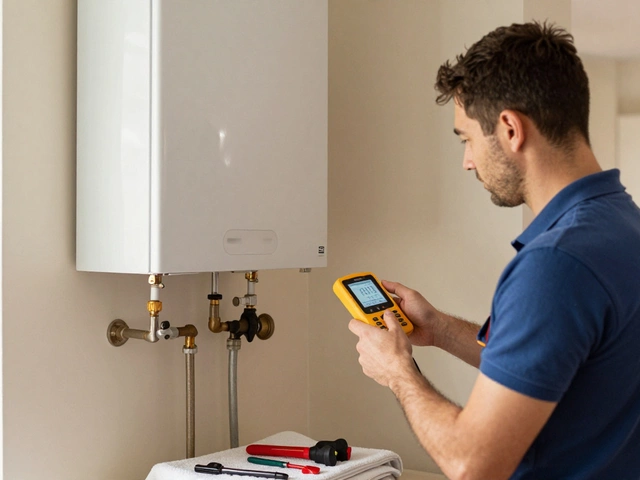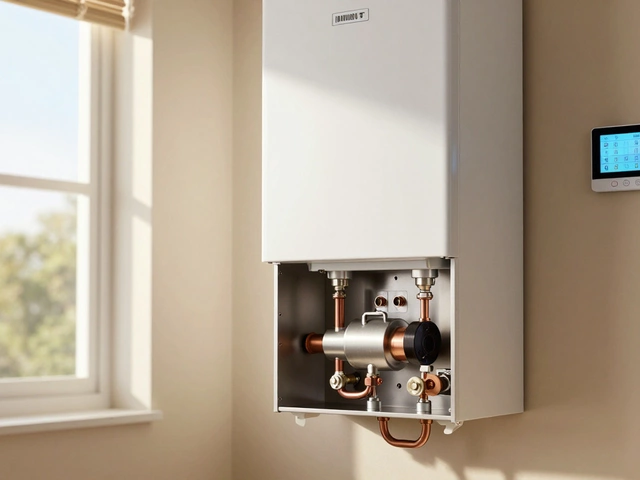Ever loaded up your dishwasher, pressed start, and walked away only to return to a machine that's either half-cleaned your dishes or is making a racket? Yeah, it's frustrating. But before you panic call your appliance guru or start hand-washing everything, you might be able to figure out the problem yourself.
First things first, let's think about the usual suspects. Is there leftover food gunk all over your supposedly clean dishes? Or maybe the machine sounds like it's auditioning for a horror movie scene. These clues are your first step in solving the mystery.
Don't underestimate the power of a good listen and sniff. Strange noises can point to debris stuck in the spray arm or a faulty motor. Meanwhile, any unusual odors might mean a clogged filter or, worse, a problem with the drain hose. Trust your senses—they can give you a surprising amount of info.
- Understanding Common Dishwasher Issues
- Identifying Sounds and Smells
- Simple Checks and Fixes
- When to Call a Professional
Understanding Common Dishwasher Issues
Let’s face it, dishwashers can act up in ways that leave us scratching our heads. But knowing what signs to look for can save you time and money. Here’s a rundown of typical problems you might encounter.
Poor Cleaning Performance
If your dishes are coming out less than sparkling, there might be a few simple reasons. First up, check if the filter’s clogged. A blocked filter means water can’t circulate properly, leaving debris on those plates. Give it a clean and see if things improve.
Big items blocking the spray arms? That’s another common hiccup. Make sure larger dishes like pans and pots aren’t stopping the spray arms from doing their job. Arrange them so water can move freely.
Strange Sounds
Noisy dishwashers are often trying to tell you something. Sounds like grinding or thumping could be as simple as something in the spray arm or as serious as a failing motor.
- First, check for any utensils that might have fallen through the rack.
- If your sprayer is clear, see if the pump housing is secure.
- Still noisy? Probably best to have a pro take a look.
Water Leaks
Water on your kitchen floor is never a good look. If you find your dishwasher is leaking, first make sure the door gasket, that rubber seal around the door, isn’t cracked or worn out.
Another leak source could be the hoses and connections. Tighten them, and if they’re worn, replace them. There’s nothing like a new hose to keep your kitchen flood-free!
Indicators Aren’t Working
If your control panel lights or indicators aren’t lighting up, it could be a power issue. Ensure the unit is plugged in, and check the circuit breaker. If everything seems fine and it’s still lifeless, the control board might need replacing.
Let’s not forget the obvious—sometimes a bit of routine maintenance and cleaning can prevent these issues from popping up in the first place. Taking care of your dishwasher helps it take care of you.
Identifying Sounds and Smells
So, your dishwasher's trying to communicate through an unusual concert of clanks and rattles, or maybe it's emitting an odor that has you questioning what exactly went in there last night. Sounds and smells are your dishwasher’s way of complaining, so let's break down what these could mean.
Decoding Dishwasher Sounds
Clanking around? That’s often caused by a loose utensil that’s fallen out of the basket or rack. A dishwasher might sound like it's struggling to push water around because of something stuck in the spray arm. Check if the arm can spin freely when the machine is off. Loud thumping noises signal something might be wrong with the motor or drain pump.
If you hear a constant hum, it might be the motor’s way of telling you it’s clogged. Before doing anything, make sure your appliance is off, then check for food debris or foreign objects.
Understanding Dishwasher Smells
No one wants their kitchen smelling like a science experiment gone wrong. If your dishwasher reeks, the first culprit to blame is often a clogged or dirty filter. If you can, remove it, and give it a thorough rinse. For persistent odors, check the drain hose—it could be kinked or blocked.
Every now and then, funky smells might also mean your water isn't hot enough. Hot water not only cleans better but also keeps odors at bay. So keep an eye on your water heater’s performance.
The Facts at a Glance
| Common Issues | Possible Causes |
|---|---|
| Clanking Sound | Loose utensils, spray arm obstruction |
| Humming Noise | Clogged motor |
| Bad Odor | Dirty filter, blocked drain hose |
Armed with this knowledge, you’re better prepared to tackle those sound and smell mysteries before they become big headaches. Listening to your dishwasher might feel odd, but it usually pays off by saving you from bigger issues down the line.
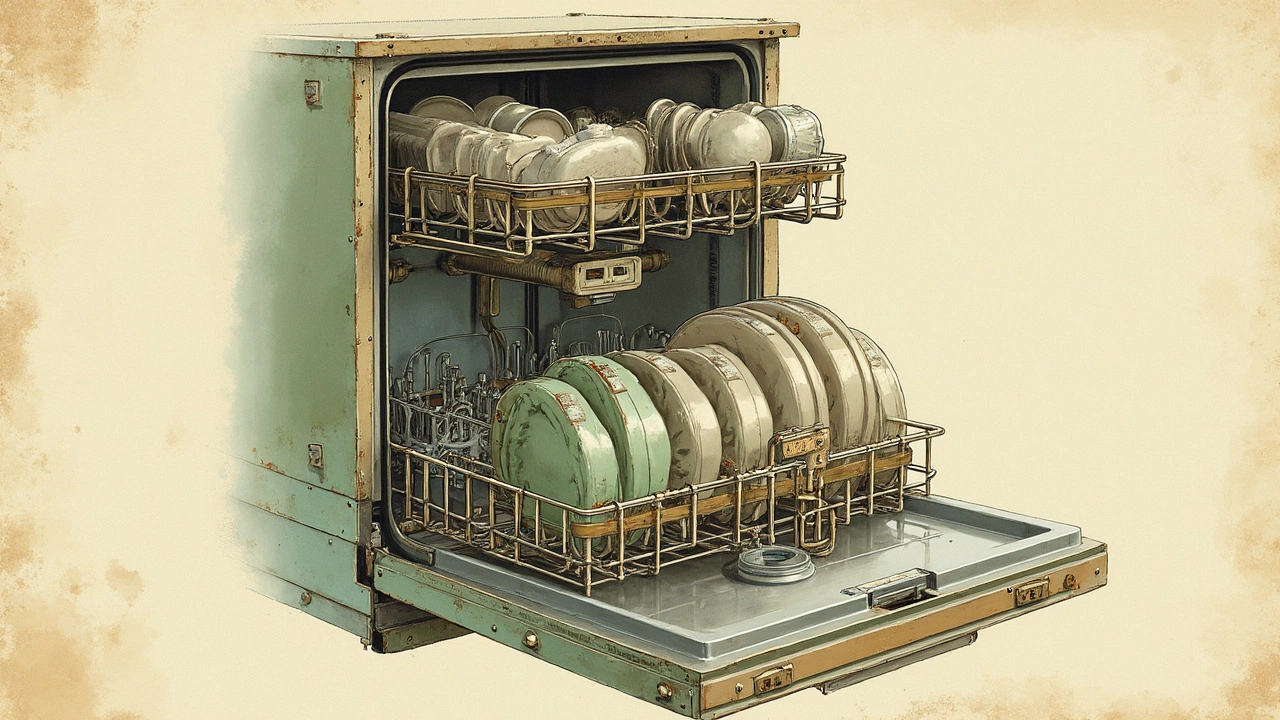
Simple Checks and Fixes
Before diving into full-on repair mode, let's run through some quick checks that might not only save time but also prevent an unnecessary call to the repair person. Sometimes it's the simple things, right?
Check the Power and Water Supplies
This may sound too basic, but ensure that your dishwasher is properly plugged in and that the circuit hasn't tripped. No power equals no function. Also, check if the water supply is turned on. It's a silly mistake that's easier to make than you'd think.
Inspect the Spray Arms and Filters
Clogged spray arms can lead to poor cleaning performance. Remove and rinse them under warm water, poking out any debris blocking the holes. The dishwasher filter is often another overlooked spot where food bits accumulate. Give that a good clean too!
Examine the Door Latch
A door that doesn't latch properly might prevent the dishwasher from starting. Look for obstructions or dirt around the latch. Sometimes a simple wipe can do wonders.
Tablespoon Fact
Did you know that overloading a dishwasher can increase the cycle time by up to 30 minutes? Overloading forces the machine to work harder to get everything clean, leading to wear and tear.
Use the Right Detergent
Not all soap is cut out for dishwashing greatness. Make sure you're using a detergent specifically for dishwasher use. Avoid using too much soap; excess suds can actually bog down the cleaning process.
Check for Leaks
If you spot water around the bottom of the machine, your first step is to inspect the door seal for any cracks or food residues. A cracked or damaged seal is a common reason for leaks.
| DIY Tip | Cost (USD) | Success Rate |
|---|---|---|
| Cleaning filter | 0 | High |
| Checking latch | 0 | Moderate |
| Inspecting seal | 0 | High |
When to Call a Professional
Sometimes, your trusty dishwasher repair skills won't cut it, and that's okay. Knowing when to throw in the towel and dial up a pro is crucial to prevent making things worse. So, when should you make that call?
Electrical Issues
If your dishwasher doesn’t even turn on, it could be an electrical problem. Messing with wires and circuits without the right know-how can be dangerous, and it’s definitely a case for the experts. Dishwasher techs are trained to handle these safely.
Water Leakage
Noticing a puddle of water around your dishwasher or even inside the machine? Constant leaks can lead to bigger problems like water damage to your kitchen floor or cabinets. Unless you have plumbing experience, it’s better to get someone who knows their way around hoses and fittings.
Major Mechanical Problems
Grinding noises, or parts that just won’t move? If you've got parts breaking off or a serious jam that you can’t clear, you probably need professional repair. Techs have the tools to take apart and fix your machine without causing more issues.
Warranty and Insurance
Don't forget to check if your appliance is still under warranty. Attempting a DIY fix can void these warranties. It might also be smart to check any home appliance insurance you have that might cover professional repairs.
| Issue | Call a Professional? |
|---|---|
| Electrical problems | Yes |
| Water leaks | Yes |
| Light clog | No |
| Broken parts | Yes |
It’s perfectly okay to let professionals handle your dishwasher troubleshooting, especially when it might cost you less in the long run compared to DIY gone wrong. Techs are there to ensure your dishes come out sparkling and your kitchen stays dry.
